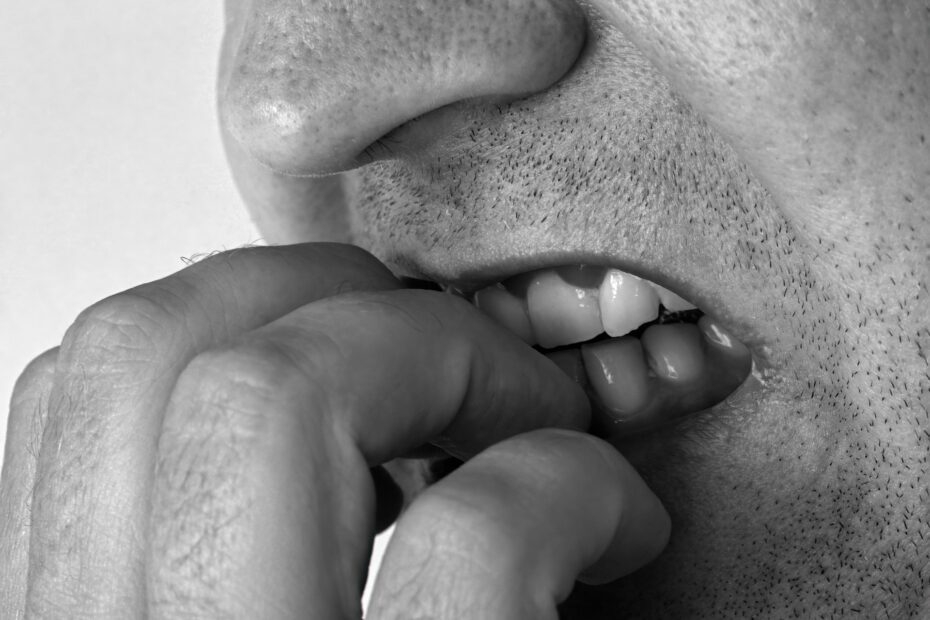Last Updated on May 7, 2023 by kavin
Nail Biting and Intelligence: Myths and Facts
Are you a nail biter? Have you ever been told that your habit is a sign of low intelligence? There are many myths surrounding nail biting and intelligence, and in this article, we will explore the truth behind them. From the science of nail biting to the psychological reasons why we do it, we will take a comprehensive look at this common habit.
Nail Biting and Intelligence
Introduction: What is Nail Biting?
Nail biting, also known as onychophagia, is a common habit that affects people of all ages. It is a compulsive behavior where a person bites their nails, often to the point where they bleed. Nail biting can be caused by a variety of factors, including stress, anxiety, boredom, and nervousness.
The Science of Nail Biting
Research has shown that nail biting is a form of oral fixation that provides a temporary sense of relief or pleasure. When we bite our nails, it releases endorphins in our brain that give us a sense of calmness and relaxation. However, this feeling is short-lived, and over time, nail biting can lead to a number of negative health consequences.
Myths and Facts about Nail Biting and Intelligence
Myth: Nail Biters Are Less Intelligent
One of the most common myths surrounding nail biting is that it is a sign of low intelligence. However, this is not true. There is no scientific evidence to support the idea that nail biting is linked to intelligence. In fact, many successful and intelligent people, such as Elon Musk and Justin Timberlake, have admitted to being nail biters.
Fact: Nail Biting Can Be a Sign of Anxiety
While nail biting is not a sign of low intelligence, it can be a symptom of anxiety or other mental health conditions. People who bite their nails may do so as a way to cope with stress or feelings of anxiety. If you find yourself biting your nails frequently, it may be worth talking to a mental health professional to address any underlying issues.
Myth: Nail Biting Can Cause Health Problems
There is some truth to this myth. When you bite your nails, you are introducing bacteria from your mouth into your body, which can lead to infections. In addition, nail biting can cause damage to your teeth and gums, as well as your nails and cuticles. However, it is important to note that not all nail biting is harmful. If you keep your nails short and clean, and avoid biting them to the point of bleeding, you are less likely to experience negative health consequences.
Fact: Nail Biting Can Be a Habit
Nail biting is a habit, and like all habits, it can be difficult to break. If you want to stop biting your nails, it may be helpful to identify triggers that lead to the behavior, such as stress or boredom, and find alternative ways to cope with those feelings. You may also find it helpful to keep your nails trimmed and filed, or to wear gloves or bandages to discourage biting.
Conclusion on Nail Biting and Intelligence
In conclusion, there is no scientific evidence to support the idea that nail biting is a sign of low intelligence. However, it can be a symptom of anxiety or other mental health conditions, and it can lead to negative health consequences if not managed properly. If you struggle with nail biting, it may be helpful to talk to a mental health professional or to find alternative coping mechanisms.
a video about
Nail Biting and Intelligence
Few questions about Nail Biting and Intelligence
FAQs
- Is nail biting a sign of low intelligence? No, there is no scientific evidence to support this idea.
- What are some of the negative health consequences of nail biting? Nail biting can cause infections, damage to teeth and gums, and damage to nails and cuticles.
- How can I stop biting my nails? Identify triggers that lead to nail biting, such as stress or boredom, and find alternative ways to cope with those feelings. Keep your nails trimmed and filed, or wear gloves or bandages to discourage biting.
- Is it harmful to bite your nails? Biting your nails can introduce bacteria into your body, which can lead to infections. It can also cause damage to your teeth, gums, and nails if done excessively.
- Can nail biting be a symptom of a mental health condition? Yes, nail biting can be a symptom of anxiety or other mental health conditions. If you struggle with nail biting, it may be helpful to talk to a mental health professional.
- Can nail-biting be a habit even if I am not anxious or stressed? Yes, nail biting can be a habit that is difficult to break, even if there is no underlying anxiety or stress. Finding alternative coping mechanisms and practicing good nail hygiene can help break the habit.
